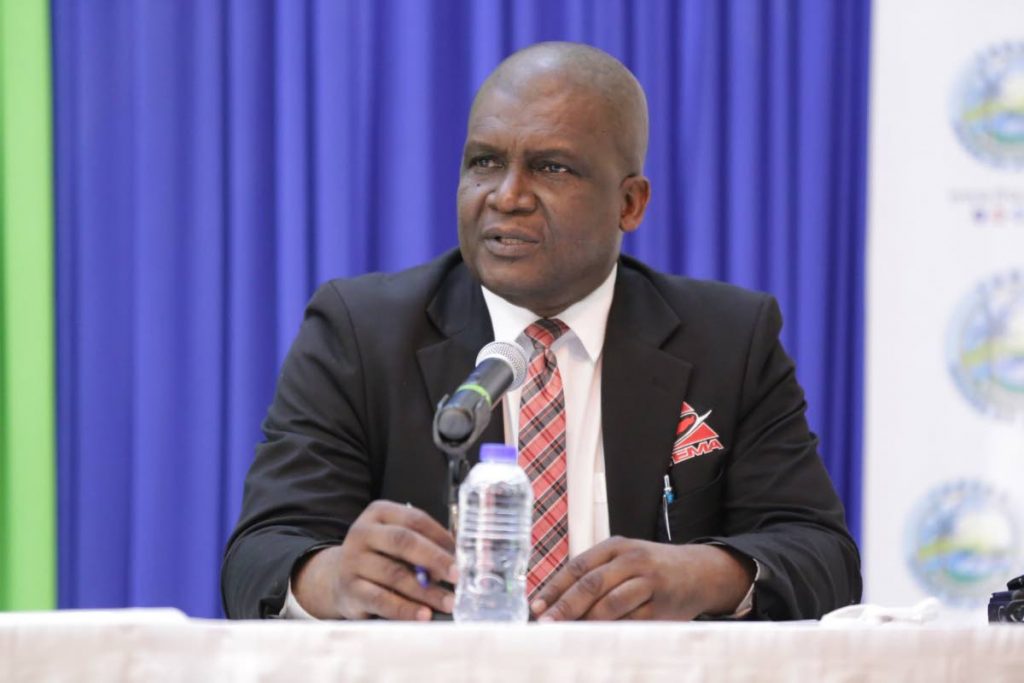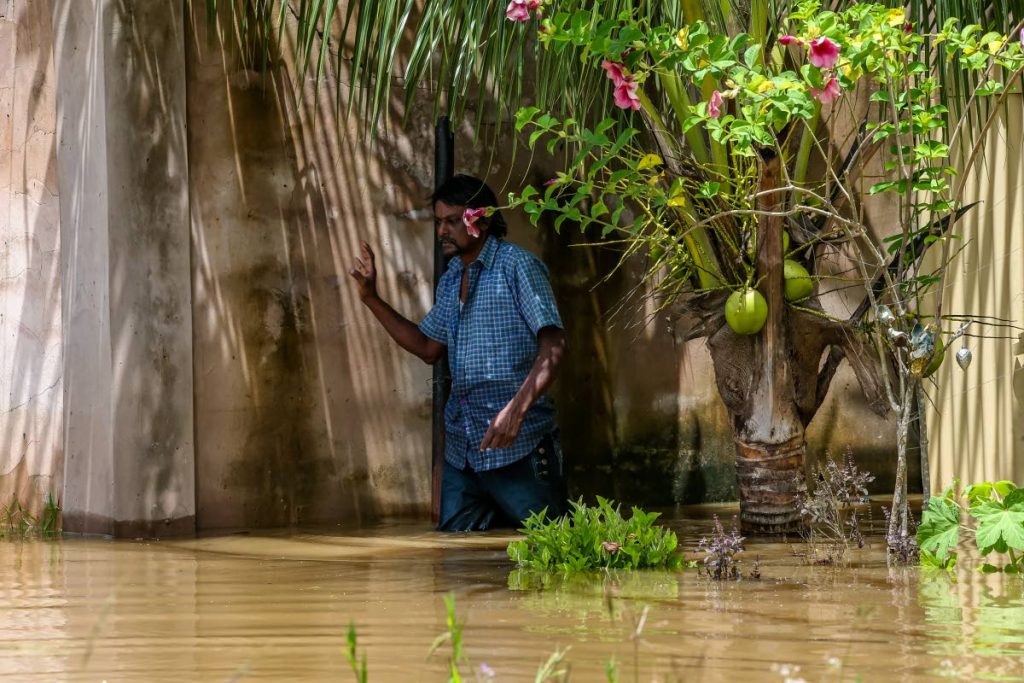Trinidad and Tobago needs comprehensive disaster management

In the last of this two-part series, MELISSA DOUGHTY speaks with TEMA director Allan Stewart about the way forward for disaster preparedness and management in Trinidad and Tobago.
Much like the work done by the Office of Disaster Preparedness (ODPM) in Trinidad, preparation for disasters in Tobago is undertaken by the Tobago Emergency Management Agency (TEMA).
Director of TEMA Allan Stewart said it has bought into the concept of comprehensive disaster management as outlined and boosted by the Caribbean Disaster Emergency Management Agency (CDEMA). To him, response and preparedness are two important elements in the disaster management cycle.
The agency’s role, he said, is to co-ordinate a network of agencies and individuals to direct their efforts towards the maximum preservation of life during times of disasters.
Tobago knows well the devastation caused by hydrometeorological hazards, with hurricanes Ivan in 2004 and Emily in 2005 being reminders and reinforcing the need for the comprehensive approach to disasters, Stewart said.
“Tobago has had a rich experience of being impacted consecutively by these hydrometeorological events. So that shaped the whole conversation and gave the rationale as to why volunteerism was not doing what it ought to do.”
He said during the disastrous events, over 200 people volunteered to assist, but by the end of it, people were sore and did not want to go through those experiences again.
Stewart said decided to go with the professional arm and that shaped the successes of TEMA in its response to emergencies.
These and many other events have created a steady increase in public sensitivity to disasters, and Stewart said many now have an appreciation for disaster risk.
“There is a subtle adaptation where people are adopting and want to even volunteer their services to that cause. Where communities have become better organised.”
He said there are also NGOs such as Radio Emergency Associated Communications Teams (REACT) and the Red Cross and other new entities that “really want to take a stake in this approach…”
While there has been adaptation, he thinks still needs to become a centrepiece in the country’s public investment system.
“We have not done enough.e still walk around the country and see we are still using slipper drains.
“Therefore it means that the capacity to deal with too-heavy rainfall that climate change is now producing….you have a short burst of rainfall and the place is flooded.”
He said the country’s infrastructure created concern especially “in an environment where we are seeing more concrete through the establishment of more and more buildings and more paved areas...”
He said these are now realities and more is needed to be done in terms of the public investment policy to ensure “the very, very timely news of disaster management reaches not just the corridors of the disaster offices but must be part of every single sector within government and more so our private sectors.”
The adaptation to climate change has been slow, and he said that is one area the country needs to improve upon.
The 2018 earthquake was also a wake-up call as to why the all-hazards approach to disaster management is so important.
Stewart said the Caribbean region is a seismic zone and has been hearing about “the big one” for a while now.
He said TT got a wake-up call on building designs with the 2018 earthquake: “How we design our spaces to be earthquake-resistant. We saw what old designs look like and behave like in the event that we had in August 2018.”
Some level of retrofitting was required for some of these structures, Stewart said. Designingbuildings.co.uk says retrofitting is "providing something with a component or feature not fitted during manufacture or adding something that it did not have."
He said this was being done at the Port of Spain General Hospital and that was an example of adaptation.
He said the government did the responsible thing to try to renovate and that was evidence of what TT did well as a country. But more still needs to be done.
Even as the country expands, renovates and revitalises, it is important that it does so with disaster risk in mind, especially when it comes to building codes and policy.
“We have not done well as a country in that regard. If honesty was to be a part of this discussion, while we are focused heavily on public sector and private sector, for example 'Eastmoorings' and Westmoorings, as to the construct of the Beetham and the hills of Laventille…
Eastmoorings is the squatting development in the southeastern part of Port of Spain, adjacent to the Caricom jetty.
“As well built as our city is, and how it has adhered to the building standards, you have a neighbouring community that is unregulated in terms of infrastructure.

“It is very evident that in a major wind-type event, these are going to be the missiles that will destroy what you have…”
He said people must reach some level of regulatory design and things must be built to standards or else TT would run into problems.
For Stewart, some of the hindrances that TT faces in terms of adequately handling and dealing with disasters are legislation, political-will and personal responsibility.
He said for the last 24 months or so, TT has seen the furthest it has gone with disaster legislation.
“It is now an activity undertaken by the ODPM in regards to its stakeholders and disaster laws and legislation.
“If you look at what is on the books, it speaks to only response and therefore when you want to factor in things for a very comprehensive approach to disaster management, you have to understand that you need legislation so that it will drive the process…”
The exercise that is being undertaken by the state is to bring the legislation to mirror some of the challenges that TT is currently facing, Stewart said.
For both ODPM and TEMA to carry out its functions, it needs teeth to do so.
Dealing with land use policy and building without regulations requires a certain kind of political will, Stewart said.
“The political will has to be one that moves beyond the five year influence on how policy is shaped."
He said personal responsibility speaks to people taking responsibility for their own properties.
“We have to recognise that a home is a very powerful investment. It is one of the greatest investments in a person’s lifetime and taking care of that property while our constitution gives you the right to your property then you need to guard it.”
Stewart said the trees that may be growing around someone’s property and may be affecting their neighbour, that person has a responsibility to ensure that that hazard is removed.
People should build responsibly, he said.
“Or do I just want to get up the structure and then run to the disaster office or regional corporation and say, ‘A landslide came down the back of my house?'”
“Human responsibility as citizens is very, very important.”
He said these were the three major areas TT should align itself to in order to address disaster risk.
The country also needs to build capacity at a community level and have early warning systems so that people can be alerted to impending disasters, for example, outdoor sirens if an area is flooded.
“You also want to look at a community’s capability to respond when they are alerted.
“We need to shift the game a little bit closer to the community itself, not just train them and tell them what to do. But also it requires tooling: it means you have to give a man the tool.”
Stewart said the day is going to come when TT will be hit by a major disaster and the importance of having community and family emergency plans will be the thing that will help.

Comments
"Trinidad and Tobago needs comprehensive disaster management"